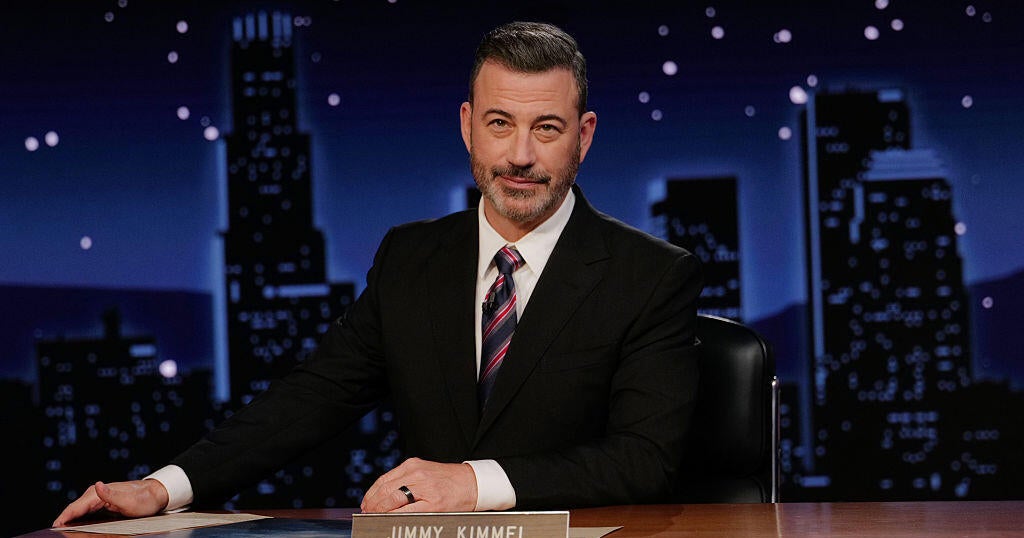In a significant shift for late-night television, Sinclair Broadcasting and Nexstar Media Group have announced that they will be reinstating “Jimmy Kimmel Live!” on their ABC affiliates, effectively ending the preemption triggered by remarks made by Kimmel following a controversial incident involving conservative activist Charlie Kirk. This decision follows a six-day pause during which much of the program’s audience, concentrated in regions served by these stations, missed episodes aimed at addressing this contentious moment. With this reinstatement, both broadcasting companies reaffirm their commitment to balancing community interests with national programming obligations.
| Article Subheadings |
|---|
| 1) Details of the Preemption and Its Duration |
| 2) Audience Response and Viewership Metrics |
| 3) Statements from Sinclair and Nexstar |
| 4) The Broader Context of Late-Night Television |
| 5) Future Implications for Programing and Broadcasting |
Details of the Preemption and Its Duration
The preemption of “Jimmy Kimmel Live!” came as a result of remarks made by the host amid a controversial event surrounding the shooting death of conservative activist Charlie Kirk. This incident provoked backlash from various stakeholders, leading Sinclair and Nexstar—two of the largest owners of ABC affiliates in the country—to halt airing the show for a period of six days. Starting from a Tuesday airing that was inaccessible to audiences under the control of these broadcasters, the station owners decided to substitute the late-night program with alternative content during prime viewing times. This coordinated decision affected a substantial segment of the national audience, given that both companies own a combined total of 71 ABC affiliates in the United States.
Audience Response and Viewership Metrics
Despite the six-day absence, audience metrics indicated a robust interest in Kimmel’s show upon its return. According to data compiled by Nielsen, the show’s first episode back attracted approximately 6.26 million viewers, significantly exceeding its usual viewership of around 1.42 million per episode during this year’s season. This surge in audience size illustrates the high levels of public engagement and potential controversies surrounding Kimmel’s remarks, showcasing his cultural impact and relevance within contemporary discussions. While the figures reported focus solely on traditional broadcast viewers, they do not account for audiences who streamed the show online, potentially inflating the actual engagement numbers even further.
Statements from Sinclair and Nexstar
Both Sinclair Broadcasting and Nexstar Media Group issued statements following their decisions to reinstate Kimmel’s show. Sinclair emphasized its commitment to providing programming that is both engaging and accurate for its audiences. They conveyed a sense of responsibility as local broadcasters to serve community interests while honoring national programming obligations. In their statement, Sinclair noted, “Our objective throughout this process has been to ensure that programming remains accurate and engaging for the widest possible audience.” On the other hand, Nexstar highlighted their appreciation for discussions with executives from Disney, the parent company of ABC. They expressed their continued commitment towards protecting the First Amendment while delivering unbiased news and programming.
The Broader Context of Late-Night Television
Late-night television is known for its cultural influence and ability to reflect and shape public discourse. Kimmel’s program, alongside others in the genre, frequently addresses current events and social issues, often using humor as a lens through which to engage audiences. The recent events have sparked conversations about the responsibilities of television networks and their hosts in navigating controversial subjects. Furthermore, the growing tension between local and national broadcasting standards raises questions about the nature of content curation. As broadcasters grapple with various audience segments, navigating the waters of social responsibility and entertainment is increasingly challenging.
Future Implications for Broadcasting and Programming
The reinstatement of “Jimmy Kimmel Live!” signals a possible shift in how broadcasting companies will approach contentious issues in the future. As late-night shows increasingly become platforms for discussing divisive topics, the strategies adopted by Sinclair and Nexstar may encourage other broadcasters to evaluate their programming choices more critically. The aftermath of this episode could lead to more closely scrutinized content decisions wherein companies must weigh community standards against national expectations. This evolving landscape raises pertinent questions about the role of local broadcasters in curating national conversations while still attracting diverse audiences keen on engaging with the content they consume.
| No. | Key Points |
|---|---|
| 1 | Sinclair and Nexstar have reinstated “Jimmy Kimmel Live!” after a six-day suspension. |
| 2 | The preemption was due to remarks Kimmel made regarding conservative activist Charlie Kirk’s death. |
| 3 | The show’s return benefited from audience interest, drawing about 6.26 million viewers. |
| 4 | Both Sinclair and Nexstar expressed commitments to responsible broadcasting in their statements. |
| 5 | The incident continues to raise questions about the balance between local and national broadcasting standards. |
Summary
The reinstatement of “Jimmy Kimmel Live!” after a brief suspension illustrates the delicate balance of responsibilities local broadcasters navigate while also engaging audiences on contentious topics. By addressing the implications of Kimmel’s remarks and fostering dialogue, Sinclair and Nexstar aim to retain their viewer base and uphold standards of good broadcasting. The broader impact of this scenario goes far beyond a single show, emphasizing the lasting importance of local media outlets in the evolving landscape of American broadcasting.
Frequently Asked Questions
Question: What caused the suspension of “Jimmy Kimmel Live!”?
The suspension was initiated due to remarks made by Jimmy Kimmel following the shooting death of conservative activist Charlie Kirk, which sparked backlash and concerns among stakeholders.
Question: How many viewers tuned into the show’s return episode?
Approximately 6.26 million people watched the first episode back after the suspension, which marked a significant increase in viewership compared to its typical numbers.
Question: What did Sinclair and Nexstar emphasize in their statements?
Both companies reiterated their commitment to serving community interests and providing programming that is engaging, accurate, and balanced, while also addressing national programming obligations.
